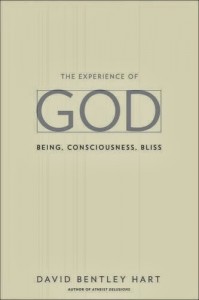Rosman: What then attracted you to convert to the consummately anti-modern Catholic tradition instead of any of the many modernity-embracing Protestant traditions? Was there a political element to your conversion, or was it driven by something else?
Linker: You had to go personal on me, huh? I don’t know if I’ve ever talked or written publicly about my conversion and its aftermath. Oh well, I guess there’s a first for everything.
The only way even to attempt to make sense of it is by telling a story. I was raised as a secular Jew in New York City. (No religious education at all, no Bar Mitzvah, etc.) In my undergraduate and graduate education, I learned a lot about Christian theology and always found it impressive as a system of ideas, though I never entertained the thought of converting. That began to change when I taught at Brigham Young University for two years in the late 1990s. I found the Mormon students and faculty there to be extremely impressive — morally and intellectually serious. When I left the university (my non-tenured visiting position came to an end), I felt a loss, like something spiritual had been stirred up inside me that now lacked an outlet. I looked into my native Judaism, but by that point it seemed more foreign to me than Christianity, and especially Catholicism. (My wife is a cradle Catholic.) So I somewhat impulsively decided to convert. I was received into the church during the Easter Vigil Mass in 2001 at lovely St. Mary’s in New Haven, CT. (The long, involved homilies by the Dominicans at that parish spoiled me. I’ve never encountered anything remotely that engaging in the years since.)
To answer one of your questions, politics had nothing at all to do with my conversion — though it’s also true that I applied for and landed a job as associate editor of First Things magazine very soon after I began my RCIA classes, so for a time I wondered if there might be something providential going on there. That was especially tempting for the nine months or so after the September 11 attacks. It seemed like every aspect of my life and identity was related, connected, harmonized: Catholic convert, Richard John Neuhaus protege, ambitious intellectual, Republican, American — and Evil Doers to smite. What could be better?
That’s one of the great Catholic promises, isn’t it? Both/And? Unlike the either/or Protestants, let alone the neither/nor secular liberals, Catholics are supposed to pull it all together, show how it All Makes Sense — or at least how it once did make sense, during the Middle Ages, the high point of Christian civilization, a time of unity and synthesis. Until Occam’s nominalism shattered the great social-intellectual whole, that is. One guy denies the reality of universals and before you know it, you’ve got the Reformation and liberalism and pluralism and After Virtue.
I’m being glib, but I sometimes feel like working for First Things during the religious right’s moment of maximal influence in Washington might have been the worst possible thing I could have done to nurture my nascent faith. I never really had any, but I wanted it very much around the time of my conversion. It began to take tentative root in the months after 9/11. But then it pretty much died. Faith was always going to be fraught for me. I’m too skeptical, irreverent, too much in the habit of doubting authority, culturally too much of a secular New York Jew, to settle in easily to faith, let alone faith in a visible church. But add on priests endorsing military invasions and whispering in the ears of princes? Widespread child rape by priests and its active cover-up by the hierarchy? By the time I quit First Things in a huff in early 2005, I wanted nothing more to do with the church at all.

That proved too hasty. Unlike my friend Rod Dreher, who left Catholicism for Eastern Orthodoxy in aftermath of the sex-abuse scandal, I stayed put. I slowly returned to the church over the next few years, and we eventually resolved to raise our kids in the church as well — though it’s been a challenge at times. Neuhaus liked to say that the Catholic Church is “the Church of Jesus Christ most fully and rightly ordered through time.” That sounds nice, doesn’t it? I can’t even begin to imagine how someone could believe that. When I read a book like David Bentley Hart’s The Experience of God, I think: this sounds right to me. I guess that means I’m some kind of classical theist. (Except for the days when I think that classical theism is probably just a self-deceptive game of “as if” in which our minds tell us exactly what we want to hear.) But note that Hart’s book says nothing about revelation, nothing about scripture, nothing about the God of Abraham, Isaac, Joseph, and Jesus. It’s the God of the philosophers slightly refined beyond the theological hypotheses that come down to us from Plato and Aristotle. There’s an enormous lacuna separating that God, who transcends the universe absolutely, and the God-man who supposedly walked among us in Judea 2,000 years ago. I find believing in the latter a constant struggle. But that’s a piece of cake compared to believing that of all the variants of Christianity in the world, the Roman Catholic Church alone is the church Christ founded, uniquely protected from the gates of hell prevailing against it, and so forth.
I have indeed been tempted by forms of Protestantism on occasion, though I don’t think because those churches are more harmonious with modernity. I’ve also been tempted by Eastern Orthodoxy. (On just about every matter that separates the West and East, I think the East has the better part of the argument. Except for the national churches thing, which seems bizarre to me. And yes, that applies to the Anglicans, too.) So I’m staying in Rome for now. If the church is a mansion, you’ll find me in the upstairs hall linen closet. That’s where they keep the tortured former atheist-Jewish converts.
================================================================================
The conclusion to this interview reminds me of this clip from the classic Hannah and Her Sisters. The priest even looks a little bit like Fr. Neuhaus:
You might also want to see how and why Catholic and Evangelical sex scandals are structurally different.
Look here for an account of Heidegger’s fraught relationship with Catholicism.












